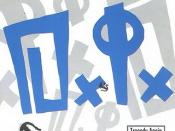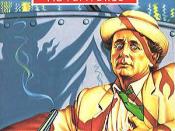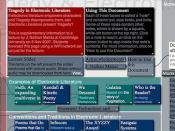ÃÂA Conversation with My FatherÃÂ is a fictional story about a daughter and her dying father. At his bedside, he asks her to tell a story. She tells a tragic story of a woman who gets involved in drugs because of her son but then the son leaves her and she is stuck in the drug lifestyle. She soon after decides to get her life back on track and she succeeds in doing so. The father rejects the daughterÃÂs ending because he believes that she is avoiding tragedy. Through ambiguity and connotation in the conversation between daughter and father, Grace Paley shows that people are often afraid of confronting tragedy or even accepting it.
Paley repeats the word ÃÂendÃÂ throughout the story. The father in ÃÂA Conversation with My FatherÃÂ is the one that uses both words the most. In lines 6-7, the father says, ÃÂPoor woman. Poor girl, to be born in a time of fools to live among fools.
The end. The end.ÃÂ The father at first shows some sort of sympathy by recognizing that this woman was not in the best condition but he goes on to say that it is the end. By the end he means the end of her life and that her life cannot get back on track no matter what. Anytime that the narrator uses the word end it is meant to describe the end of the drug addict woman in the daughterÃÂs story (Lines 6-8, 14).
Grace Paley also has repetition of the word tragedy. The word tragedy is also ambiguous throughout the story. In line 9, the father says, ÃÂwhat a tragedy. The end of a person.ÃÂ In this line the fatherÃÂs usage of the word tragedy is not ambigious because it is clear that he is describing the end...


